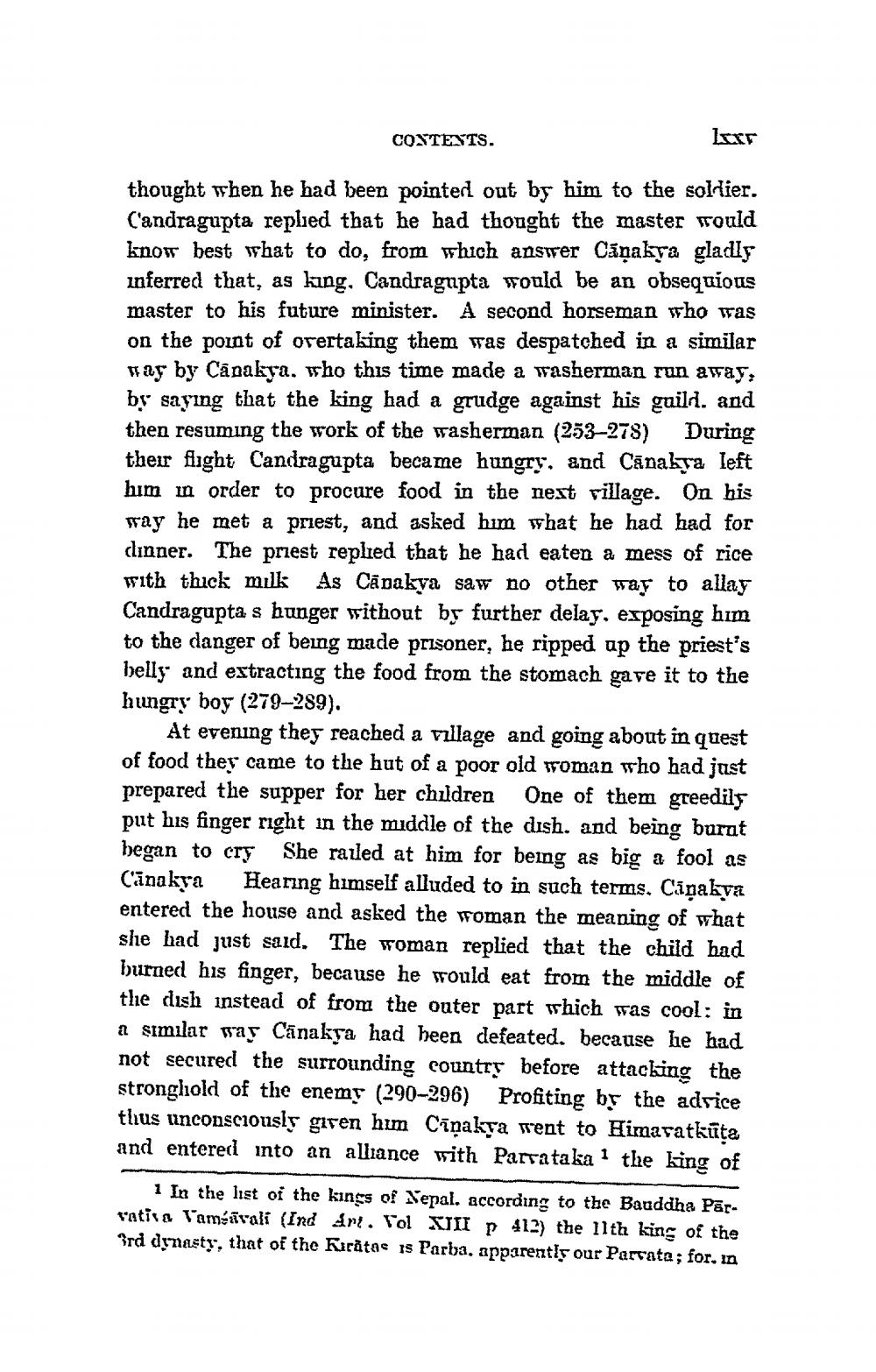________________
COSTETS.
lexy
thought when he had been pointed out by him to the soldier. Candragupta replied that he had thonght the master would know best what to do, from which anster Cāņakya gladly inferred that, as king, Candragupta would be an obsequious master to his future minister. A second horseman who was on the point of orertaking them was despatched in a similar way by Capakya. who this time made a washerman run away: by saying that the king had a grudge against his guild, and then resuming the work of the vasherman (253-278) During their flight Candragupta became hungry, and Canakya left him in order to procure food in the next village. On his say he met a priest, and asked him what he had had for dinner. The priest replied that he had eaten a mess of rice with thick milk As Cãpakya saw no other way to allay Candragupta s hunger without by further delay, exposing him to the danger of being made prisoner, he ripped up the priest's helly and extracting the food from the stomach gave it to the hungry boy (279–289).
At evening they reached a village and going about in quest of food they came to the hut of a poor old woman who had just prepared the supper for her children One of them greedily put his finger right in the middle of the dish. and being burat began to cry She railed at him for being as big a fool as (anakya Hearing himself alluded to in such terms. Cīņakya entered the house and asked the woman the meaning of what she had just said. The woman replied that the child had burned his finger, because he rould eat from the middle of the dish instead of from the outer part which was cool: in a similar was Cānakya had been defeated. because he had not secured the surrounding country before attacking the stronghold of the enemy (290-296) Profiting by the advice thus unconsciously given him Cīņakya went to Himaratkūta and entered into an alliance with Parvataka ? the king of
1 In the list of the kings of Nepal. according to the Bauddha Par. ratira l'amārali (Ind Art. Pol XII P 412) the 11th king of the 3rd dynasty, that of the Kuråtas is Parba, apparently our Parvata; for, in




